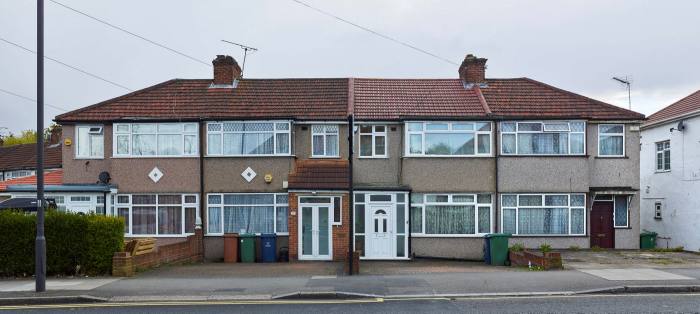In 2040, when travel rules ease, this is how I will start my much-delayed visit to London. It is a routine I commend to the shrewder kind of tourist. I will take the Tube out to Queensbury, near the end of the Jubilee line, tour the launderettes and SIM-card vendors outside the station and dine at the Regency Club, the least prepossessing good restaurant in the kingdom.
This was once the sweetly English “Metro-Land” of Betjeman verse. It is now where proprietors from the subcontinent, Africa and post-Soviet Europe run low-margin businesses. You are welcome to find this world of Western Union signage less gripping than I do. But more than Mayfair or Spitalfields, this is the guts and grease — not just the fragrant theory — of globalisation. And it was made to be next-of-kin to countryside.
In the US, too, Queensburys have long proliferated in what we might until 2020 have called the corona of big cities. You will eat more interestingly in Plano than in downtown Dallas. There is more of east Asia and the Horn of Africa in a few strip malls outside Washington than in Embassy Mile. LA’s habit of naming central districts after minorities (“Little Armenia”) obscures the demographic churn farther out. Neighbourhoods that were conceived for monoculture have come to exude the opposite. As a verdict on “urban planning”, that joyless oxymoron, the eloquence leaves you standing.
I have banged the drum for suburbia before — if not as a place to live, then as the frontline of social change over my lifetime. Those who cursed the pricing-out of all but the rich from city centres never followed their own logic to the end. The corollary of the banal metropolis has been ever more complex outskirts.
It is only proper, then, to mark the coming reversion to type. In April, research by Bloomberg suggested that 84 per cent of Americans who left cities during the pandemic stayed within their metro area. In 91 per cent of suburban counties, more people moved in than out. In a similar supermajority of “urban centres”, the opposite happened.
Among millennials — some of whom have children and laugh lines, remember — this hunt for space precedes the pandemic and the urban crime surge. House prices bear out the same trend in other countries. We are living through suburbia’s reconquista by the kind of professionals who quit it for brighter lights decades ago. It follows that the poorer migrants who took their place stand to be edged back out again.

What beckons is the new, old city: more familiar to an 80-year-old than to me in its professional fringe and poor or at least mixed-class core. It may be a fairer doughnut than the current kind. I can live without the 21st-century rite of being steered through super-prime urban nightscapes by an Uber driver who faces a trek home to Enfield. Even in as small a place as Washington, the low-paid make a daily Odyssey to service a rich centre. Paris at its most segregated takes the same theme to the nth degree.
Whatever its justice, though, the enrichment of suburbia is a more plausible outcome of the crisis than most of those touted. The notion that remote work was going to galvanise the rustbelt was always credulous. So too are dreams of a lasting flight to the country or Thai-island digital nomaddery. Access to the office still matters, even if presenteeism fades. Bars and restaurants mean new clients, not just the ephemera of “collaboration”. The advantages of agglomeration have been trimmed, not wiped out, in matters of work. In matters of play, not even that much has happened. If the mobile and spoilt-for-choice move anywhere en masse, it is much likelier to be tens than hundreds of miles away.
The price is the dimming of the beacon that suburbs flashed to migrants over the course of my life. All the more reason to savour their improbable variety while you can, then. It was with a curious and almost journalistic mood that I used to take the temperature of Queensbury. Next time, whenever that is, it might be an elegiac one.
Email Janan at janan.ganesh@ft.com
Follow @ftweekend on Twitter to find out about our latest stories first

